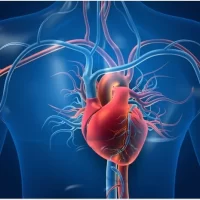What is Weight Loss
Weight loss refers to a decrease or cutting down on the total body mass of an individual, usually as a part of an effort towards improving fitness and health, and also to shape the appearance of one’s contours. It can happen unintentionally due to underlying health issues or intentionally by conscious lifestyle choices aimed at shedding excess pounds. It is generally achieved by adopting a lifestyle that includes balanced diet, regular physical exercise, sufficient sleep and minimized stress.
Health professionals often recommend weight loss as a strategy to reduce certain health risks. It’s not uncommon for one to feel healthier, more energetic and exude more self-confidence after achieving desired weight loss. However, it’s critical to approach weight loss in a healthy sustainable manner for long term success without harming the body. Thus, weight loss is not just related to aesthetics but also has a significant impact on an individual’s overall wellbeing.
Health Benefits of Weight Loss
Weight loss, when achieved in a safe and sustainable manner, can unlock a myriad of health benefits. One of the primary benefits is the considerable reduction in heart disease risk. Lower body weight means your heart doesn’t have to work as hard to pump blood throughout the body. Reduced body fat also translates into decreased cholesterol and triglyceride levels, which further diminishes the likelihood of heart-related disorders.
Another significant health benefit of weight loss pertains to the enhancement of respiratory efficiency. Carrying extra weight can put additional pressure on the lungs, causing hindered breathing and even leading to conditions such as sleep apnea. As weight decreases, so does the strain on your respiratory system, leading to improved breathing and better sleep. In addition, weight loss may even contribute to better mental health by improving mood, body image, and overall life satisfaction.
Prioritize Breakfast Every Morning
Starting your day with a nutritious breakfast can set the pace for the rest of your day’s dietary decisions, instilling a positive tone that often translates into making healthier choices throughout the day. It kick-starts your metabolism, helping you burn calories from the get-go and providing you with the necessary energy to handle your daily tasks. It’s paramount not to skip this essential meal, as those who do so frequently tend to indulge in overeating during later meals, leading to unnecessary weight gain.
Mindfully selecting what foods to incorporate into your breakfast, focusing on a balanced combination of complex carbohydrates, healthy fats and proteins, can have a lasting impact on your weight loss journey. For example, a breakfast rich in lean proteins like egg whites, paired with whole grain bread and a serving of seasonal fruits, can keep you satiated for longer and ward off mid-morning cravings. Therefore, starting your day with such a meal can be a key component of a successful weight loss strategy.
Mindful Eating
In the hurry of our daily lives, people often eat their meals while multitasking, which can lead to overeating without realising it. Mindful eating is the practice of paying full attention to the process of eating, to notice the tastes, smells, thoughts and feelings that arise during a meal. Taking the time to focus on the act of eating can help to control portion sizes, reduce binge eating and even lose weight.
Eating mindfully involves chewing slowly and savoring every bite, appreciating the food that you are consuming without distraction. This can help you recognize when you’re truly satisfied, rather than simply eating until your plate is empty. The feelings of hunger and fullness can guide the decision to start and stop eating, reducing chances of overeating. This approach to eating has also been linked to improved digestion, increased enjoyment of food, and better nutrient absorption.
Savor Your Food
One crucial aspect of weight loss overlooked by many is the basic human act of truly savoring the food one consumes. The process of slowing down and enjoying the taste, aroma, and texture of meals not only adds joy to eating but also helps curb overeating. Overindulgence is often a result of quick eating, not allowing the stomach enough time to signal the brain about its fullness. Thus, by taking the time to appreciate and savor every bite, we not only enhance our culinary experience but also reduce excessive calorie intake.
Besides, mindful eating goes hand-in-hand with savoring food. Paying attention to the flavors permitted by each morsel of food, and relishing it can increase your satisfaction levels, making you feel fuller after meals. There’s no denying the fact that this approach assists digestion and nutrient absorption, as chewing food thoroughly breaks it down into smaller, more digestible particles. Therefore, learning to savor food could form an essential part of a successful weight management strategy.
Frequent, Small Meals
Implementing a regimen of frequent, smaller meals throughout the day, rather than the traditional three large ones, is a beneficial shift when embarking on a weight loss journey. This concept of ‘grazing’ rather than ‘gorging’ promotes balance in blood sugar levels, preventing sudden energy crashes and urges to binge on unhealthy, high-sugar alternatives. Consuming six well-spaced, balanced meals also works favorably towards maintaining a high metabolism rate, thereby enhancing the body’s capability to burn calories more efficiently.
Such an eating pattern not only encourages a healthy weight but fosters improved overall wellness. By partaking smaller, regular meals, one can better regulate hunger pangs, control portion sizes and prevent overeating. Furthermore, it provides a constant supply of energy, supporting cognitive functioning and physical stamina throughout the day. It goes without saying, the selection must be of nutrient-dense, high-fiber foods to ensure the body is sufficiently nourished while working towards the ultimate goal of weight reduction.
Choose Smaller Plates
Opting for smaller plates during meal times has a significant impact on portion control, which is crucial for weight loss. It is an incredible, nearly effortless psychological hack that doesn’t necessitate meticulous calorie counts or restrictive diets. The concept behind this choice is tied to the idea of ‘Delboeuf illusion,’ a visual perception phenomenon where identical portions tend to look smaller on larger plates and vice versa. Consequently, one ends up eating less just by using a smaller dish.
The shift to smaller dinnerware not only helps you consume fewer calories but also ensures you feel satisfied. Ultimately, what matters is not just the quantity of food you eat, but also your perception of it. Hence, a conscious decision to adopt smaller plates directs your mind into believing you have had a substantial meal, thus curbing the temptation to overeat. This neural connection between what we see and what we consume proves to be an effective strategy in weight management.
Early Dinner and Nighttime Routine
Transforming your eating habits to include an early dinner and incorporating a healthy nighttime routine can lead to significant weight loss over time. It’s essential to allow your digestive system ample time to process your final meal of the day before sleep, providing a period of fasting. Eating an early dinner ensures the body utilizes the calories consumed for energy rather than storing them as fat during your slumber.
Developing a sound nighttime routine aids in moderating your circadian rhythm, which plays a pivotal role in weight control, appetite regulation, and metabolism. This routine might incorporate activities such as a light evening stroll or relaxing bedtime rituals like reading or meditative practices. Maintaining consistent sleep hours can also help balance hormones that control hunger, further assisting in weight management. The combination of an early dinner and a conscious nighttime routine not only aids weight loss but also promotes overall well-being.
Hydration Timing
Hydration is an essential facet of any weight loss endeavor and, given equal importance for its crucial role in health and vitality. Hydrating the body works best when performed at specific intervals rather than infrequently and in large quantities. Water helps to cleanse the body off toxins, keep the digestive system running smoothly, and helps the body metabolize fat more effectively.
The timing of consumption can significantly impact hydration benefits. It’s advantageous to drink water first thing in the morning, as it activates the internal organs allowing for a jumpstart on the day. Drinking water thirty minutes before meals can help control meal intake by adding a sense of fullness, limiting overeating. The avoidance of hydration during meals is also recommended, as it can dilute digestive enzymes and slow down the digestive process. Remember, hydration extends beyond just water—it includes all beverages and high-water-content foods. With the right strategy, the lowly act of drinking water can become a powerful tool in your weight loss journey.
Preserve Nutrient Content
Maintaining the nutrient content in our diet can significantly aid weight loss. When food is cooked or processed, it has a tendency to lose some of its natural nutrients thus impacting the health benefits associated with the consumption of these nutrients. Consuming foods in their raw form, therefore, can ensure that we benefit fully from the nutrients and fiber they provide. This is not to suggest that all foods should be consumed raw, but finding a balance between raw and cooked foods can help preserve nutrient content.
For instance, while cooking, instead of boiling vegetables which tends to leach out vitamins, opt for steaming them. This method can preserve the maximum nutrient content. Likewise, fruits, especially those rich in Vitamin C, should be consumed fresh, as this vitamin is destroyed by heat and by being exposed to air for too long. Thus, preserving nutrient content is a beneficial strategy we can adapt to ensure a healthier diet and promote weight loss.
Fruit Consumption Strategy
Incorporating fruits into your daily dietary regimen has significant health benefits while it also supports weight loss missions. Fruits have relatively low-calorie density, high fiber, and a pretty high water content – all traits which support weight loss. The high fiber content in fruits not only satiates your hunger but also prevents overeating by maintaining longer periods of fullness. Besides, the natural sugar contained in fruits provides a healthier alternative to snacks laden with refined sugars and unhealthy fats.
Shrewdly integrating fruit consumption into your diet can optimize these benefits. One strategy is substituting high-calorie, low-nutrient snacks with a mix of fresh fruits. The vibrant colors of fruits also help in reducing cravings for unhealthy foods by satisfying the eye as well as the palate. Eating fruit before the main meals can create a sense of fullness and reduce the overall calorie intake during the meal. This is not only a healthy and natural way to cut down on your overall daily food intake, but it also incorporates more nutrients and fiber into your diet for optimized health.
Out of Sight, Out of Mind
Research has proven that the proximity and visibility of food can significantly impact consumption habits. Not placing ready-to-eat food items in the front of your fridge or pantry might deter from indulging in spontaneous snacks. When healthy, pre-prepped options become the immediate choice, healthier dietary habits gradually establish.
This isn’t about denying any cravings or restricting any food groups. Instead, this strategy aligns with the phrase ‘out of sight, out of mind.’ By storing high-calorie treats in opaque containers or at the back of the cupboards, the temptation of these items decreases. It’s easier to opt for healthier alternatives when the unhealthy ones aren’t as readily accessible. This approach empowers individuals with a different perspective towards food, aiding their weight loss journey.


























